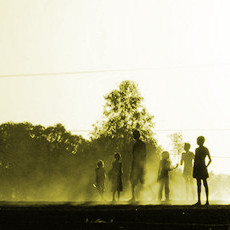NT summit seeks care
 A recent event brought ‘peacemakers’ from across the NT together to discuss conflict resolution.
A recent event brought ‘peacemakers’ from across the NT together to discuss conflict resolution.
Fifty elders and authorities from remote communities converged in Katherine last week to explore ways of settling disputes without resorting to violence.
The North Australian Aboriginal Justice Agency (NAAJA) spearheaded the program, fostering dialogue among community leaders from Yuendumu, Wurrumiyanga, Lajamanu, Groote Eylandt, Galiwin'ku, and Yirrkala.
Among those championing the cause was Danny Garrawurra, a revered peacemaker from the secluded community of Galiwin'ku.
Garrawurra spoke passionately about his commitment to reconciling differences while honouring his Yolngu cultural obligations.
“We are facing those problems within family to family, and it really is a struggle for us,” he said, according to reports.
“How can we work together, as humans?”
Statistics from the Australian Institute of Health and Welfare show Indigenous Territorians experience the highest rates of assault-related hospitalisations in Australia, particularly in disadvantaged remote regions.
Nick Espie, NAAJA's principal legal officer, stressed the urgent need for enhanced support and resources for local mediators to prevent domestic disputes from escalating.
“There are a lot of people here that have worked very hard in this role that often takes a personal toll,” he said.
“They've done this unnoticed, and often without funding and without being paid.”
Despite grappling with limited resources, local peacemakers have already begun to effect tangible change.
One success story has emerged from Groote Eylandt, where a grassroots program has been making strides since 2018.
NT Police data allegedly indicates a remarkable decline in offences committed by young individuals on the island, plummeting from 346 in 2018 to just 17 the following year.
Roderick Mamarika, a peacemaker from Groote Eylandt, compared his work counselling troubled residents to untangling a fishing knot.
“Sometimes the lines are tangled, and there's a knot there and you need to untie it and make it straight,” he said.
“This is what we do, we untie problems from the people in our community.”








 Print
Print